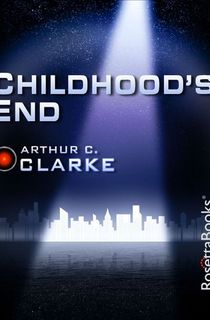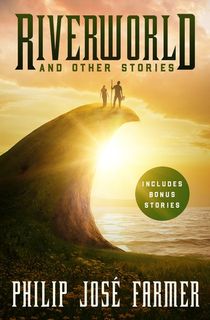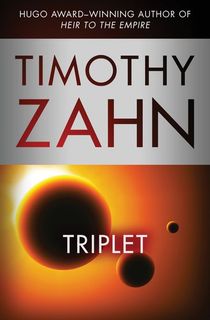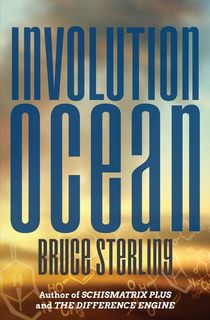If you're a science fiction reader, then you know Dune. Frank Herbert's epic is considered by many to be the single greatest science fiction novel ever written. And rightly so: Dune's characters are moving and complete, its plot is fascinating and powerful, and its world is among the most unique and fully realized in the history of speculative fiction. Reading Dune for the first time will make you wish that you could erase your memory and start over, just so you could experience it all again for the first time.
You can't do that, of course (sorry). And while Dune's many sequels and spin-offs give fans plenty more to check out after they finish the original masterpiece, none of those can match the original experience. With that in mind, we went digging through our bookshelves looking for Dune-like stories that Dune fans may not have read yet. These books aren't Dune, but they offer similar experiences, and they belong on any Dune fan's reading list.

Jaran
Kate Elliott's Jaran imagines an interstellar future in which a massive political power, the Chapalii empire, governs conquered planets — including Earth. Protagonist Tess Soerensen, a native of Earth, leaves home for the planet Rhui. There, she meets the Jaran, natives of Rhui who live as nomads and are ruled by none other than Soerensen’s own brother. Like Frank Herbert’s Dune, Elliott’s Jaran wrestles with ideas of colonialism and imbalances of political and military power.
Related: 14 Groundbreaking Female Science Fiction and Fantasy Authors

Childhood's End
British novelist Arthur C. Clarke is one of science fiction's all-time great writers, and Childhood's End is one of his most thought-provoking works. Set after an alien invasion, Childhood's End examines mankind in submission. Ruled by a more powerful alien race, mankind benefits in some ways and suffers in others. Clarke's view of power imbalances and interstellar colonialism should be of interest to Dune fans, though Childhood's End is in some ways very different from Frank Herbert's masterpiece.

Riverworld and Other Stories
The fictional planet of Riverworld is arguably Philip José Farmer's greatest creation. Riverworld is a large terraformed planet dominated by a river valley that snakes all over its surface. It is home to humans who have been artificially resurrected for some unknown purpose. Farmer's use of sexual and religious themes, along with his strange and carefully constructed setting, will intrigue fans of Dune.

Triplet
For science fiction fans, Timothy Zahn needs no introduction. Zahn is one of the greatest to ever write in the genre, and while he didn’t write Dune, Zahn has written a few all-time classic science fiction novels of his own. Among them is Triplet, in which Zahn creates a planetary system as vividly imagined as the Dune universe. The Triplet system comprises battle-scarred planets that are connected by portals and full of mysterious and primal magic. Readers explore Triplet along with a researcher, giving Zahn's novel an anthropological feel that suits the world-building.

Involution Ocean
Bruce Sterling's Involution Ocean reads like a speculative fiction version of Moby Dick. Sterling's protagonist is hooked on a powerful drug derived from the whale-like creatures native to the deep sea of the planet Nullaqua. He joins up with a whaling ship in the hopes of getting his next fix. Involution Ocean's vividly imagined world, with its crucial commodity and native megafauna, is reminiscent of Arrakis in Frank Herbert's Dune.

The Jesus Incident
Frank Herbert is best known for Dune and other classic novels set in the same universe. But the somewhat lesser-known novels that Herbert set in his Destination: Void universe are well worth reading if you're a fan of Herbert's writing. Herbert's 1979 novel The Jesus Incident is the second novel set in the Destination: Void universe (after the eponymous Destination: Void, published in 1965), though its plot ties it more closely to its two sequels, The Lazarus Effect (1983) and The Ascension Factor (1988).
Readers can skip Destination: Void and read The Jesus Incident and its two sequels as a trilogy if they so choose. Like Dune, Herbert’s The Jesus Incident is concerned with post-Earth mankind and colonial ambitions. The novel alternates narratives, covering settlers on the ocean planet of Pandora as well as characters aboard an orbiting ship, where the shipboard AI has become sentient.

Foundation
Like Dune, Asimov's Foundation is widely considered to be one of the greatest science fiction novels of all time. The parallels don't end there, though: Both novels are set in distant futures and envision mankind far removed from its Earth-bound past. Both consider the role of prophecy, and both create convincing worlds rich enough to host plenty of sequel and prequel works.

Speaker for the Dead
Orson Scott Card's Ender's Game is one of the greatest science fiction novels ever written, but the story doesn't end there — and fans of Dune might prefer the sequel to Ender's Game, 1986’s Speaker for the Dead, over the original. Speaker for the Dead witnesses an older Ender on a foreign planet, where human colonists and a native alien species struggle to understand each other—with sometimes violent results.

Dan Simmons
Like Frank Herbert, Dan Simmons has a real talent for detailed and convincing world-building. The universe of Hyperion is dominated by the Hegemony of Man and connected by portals that make interstellar travel a breeze. Hyperion uses essentially the same structure as Geoffrey Chaucer's The Canterbury Tales: A frame tale contains a series of short stories with different protagonists.

Lord of Light
The political intrigue of Dune is a big part of the reason that the book and its sequels have stood the test of time. Zelazny's Lord of Light is a great choice for fans of politics in science fiction plots. Like Dune, Lord of Light envisions a post-Earth future for mankind and has a great interest in colonialism and spirituality. The bad news: Unlike Dune, Zelazny’s Lord of Light has no sequels, prequels, or spin-offs to turn to after the last page.
This post was first published on The Portalist.
This post is promoted by Open Road Media. Thank you for supporting our partners, who make it possible for The Portalist to celebrate the sci-fi and fantasy stories you love.





